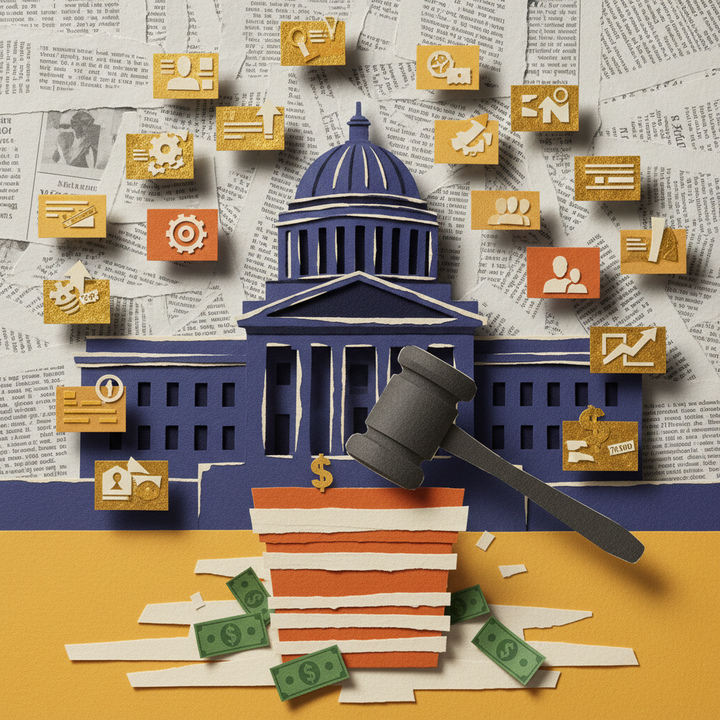Arizona Governor's Veto of Bitcoin Reserve Bill Ignites Debate

Arizona Governor Katie Hobbs has officially vetoed a bill that would have allowed the state to hold Bitcoin as part of its official reserves. This decision has sparked significant controversy among cryptocurrency advocates and state lawmakers, who argue that the move undermines potential economic benefits.
Key Takeaways
- Governor Katie Hobbs vetoed Senate Bill 1025, which aimed to create a Bitcoin reserve for Arizona.
- The bill had passed the Arizona House with a narrow vote of 31-25.
- Critics of the veto argue it reflects a lack of understanding of cryptocurrency's potential.
- Supporters of the bill plan to reintroduce it in future legislative sessions.
Background of the Bill
Senate Bill 1025 was designed to allow Arizona to invest seized funds into Bitcoin, establishing a digital assets reserve managed by state officials. The bill was part of a broader trend among several states exploring the adoption of cryptocurrency reserves. If passed, Arizona would have been the first state in the U.S. to implement such a policy, potentially setting a precedent for others to follow.
The bill garnered attention as it aligned with national discussions about cryptocurrency, particularly in light of recent proposals from federal lawmakers to establish a national Bitcoin reserve.
Governor Hobbs' Rationale
In her veto statement, Governor Hobbs emphasized the importance of sound investment practices, stating, "The Arizona State Retirement System is one of the strongest in the nation because it makes sound and informed investments. Arizonans' retirement funds are not the place for the state to try untested investments like virtual currency." This statement reflects her concerns about the volatility and risks associated with cryptocurrencies.
Reactions to the Veto
The response to Hobbs' veto has been swift and polarized:
- Critics: Prominent figures in the cryptocurrency community, including Bitcoin entrepreneur Anthony Pompliano, criticized the decision, labeling it as ignorant. Pompliano stated, "Imagine the ignorance of a politician to believe they can make investment decisions."
- Supporters of the Bill: State Representative Wendy Rogers, who co-sponsored the bill, expressed disappointment, asserting that "politicians don’t understand that Bitcoin doesn’t need Arizona. Arizona needs Bitcoin."
- Skeptics: Conversely, some financial experts, like Peter Schiff, supported the veto, arguing that public funds should not be used for speculative investments in cryptocurrencies.
Future of Cryptocurrency Legislation in Arizona
Despite the setback, supporters of the Bitcoin reserve bill are determined to continue their efforts. Rogers has indicated plans to refile the bill in the next legislative session, suggesting that the push for a Bitcoin reserve in Arizona is far from over.
Additionally, other states are also exploring similar legislation, with North Carolina recently passing a bill allowing limited investments in cryptocurrencies. This indicates a growing interest in digital assets at the state level, despite the challenges faced in Arizona.
Conclusion
Governor Hobbs' veto of the Bitcoin reserve bill has ignited a significant debate about the role of cryptocurrencies in state finances. As the conversation around digital assets continues to evolve, the future of such legislation in Arizona and beyond remains uncertain. Advocates for cryptocurrency will likely continue to push for policies that embrace digital assets, while opponents will advocate for caution and traditional investment strategies.


